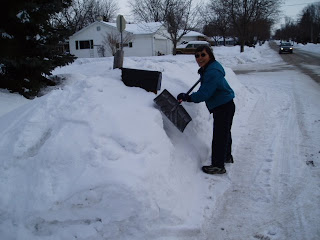
The following story was told by my church friend, Dr. Huang Jin-Teh about his trip in France with a Taiwanese tour group led by a Taiwanese Travel Agency manager.
One day, Dr. Huang and his wife were at a buffet place of a luxurious French restaurant in France. They could not find other trip companions from Taiwan. The manager of the restaurant directed them to a meeting room where he found his friends in the group jamming together in the (meeting) room. There were no serving plates; even the croissants were put on napkins (instead of plates). Next to the room was another meeting room in which anther tourist group from China jammed together receiving similar treatment from the restaurant managers. However, the Japanese tourists, American tourists, and other European customers were mingling in the big buffet place enjoying standard restaurant services.
"Why are we not eating in the buffet place but jamming together in this room?", ask Dr. Huang
"The European restaurant managers believe that the table manners of Chinese (including Taiwanese) are not compatible with other European customers; to be more specific, the Chinese are noisy in the table manners. Chinese customers are usually eating in the meeting rooms separating from customers of European and Japanese nationalities.", said the Taiwanese Travel Agency manager.
"This is not right." said Dr. Huang, " First of all, Taiwanese is not Chinese and our behavior had been quiet and our table manners have been civil ; second, our contract did not say we should eat in the meeting room not at the buffet place. "
"I don't think the restaurant manager will believe in your argument." said the Travel Agency manager.
"If you don't want to talk to the restaurant manager, I can give it a try." said Dr. Huang.
Our friend, Dr. Huang, did talk to the restaurant manager and finally the manager agreed to Dr. Huang's argument. He apologized to Dr. Huang and other Taiwanese tourists. The Taiwanese tourists eventually received the services they deserved.
Most of the tourist members were educators (school teachers, college professors). They should not be received the second-class-citizen-services from the restaurant at all.
Photo shows Chen's couple and Huang's couple at my residence.


















